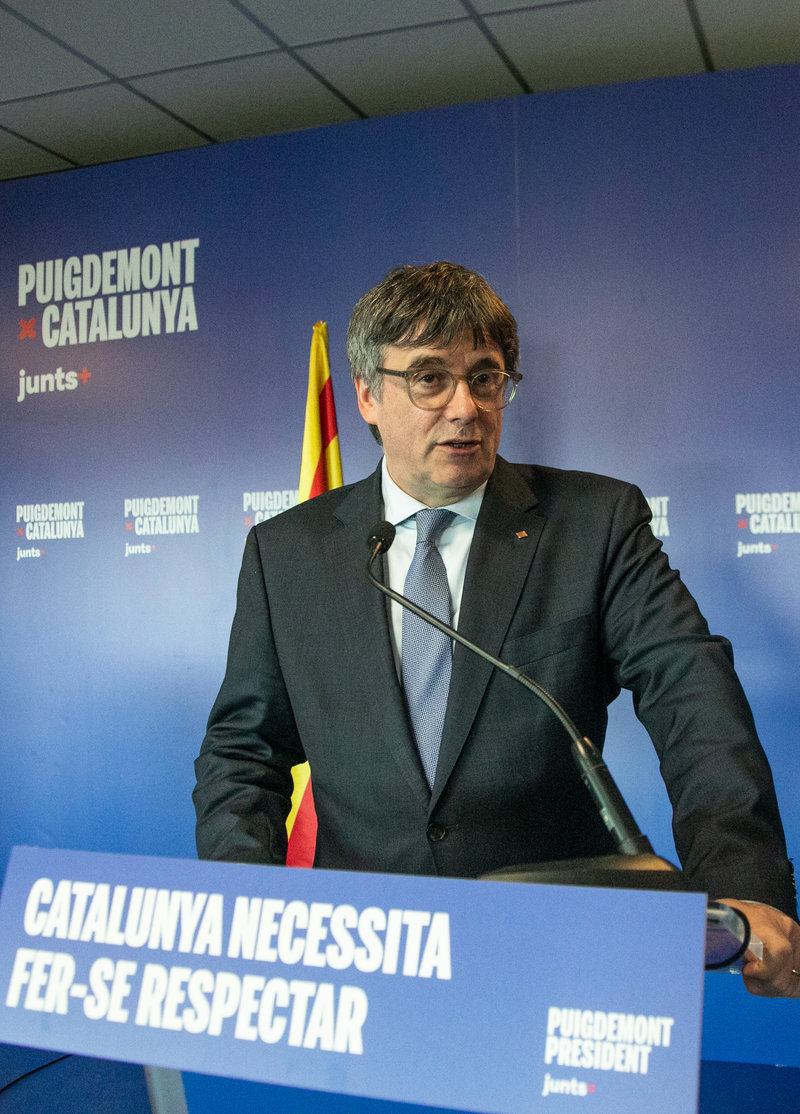THE CULTURAL TIGHTROPE
BEWARE OF THE BIAS
So elections are upon us once again in Catalonia, and with them comes intense scrutiny of the figures hoping to win the support of a majority of voters and gain power. Of course, elections in this part of the world are made all the more intriguing by the fact that a certain political figure who will be running for President actually made a declaration of independence for Catalonia seven years ago and has since been persecuted by the Spanish courts, forcing him to live in exile ever since. I am referring, of course, to Carles Puigdemont, a man whom the magazine Politico recently included as one of the top ten disrupters in Europe due to the fact that the seven seats his party Junts per Catalunya hold in the Spanish congress are pivotal to Prime Minister Pedro Sanchez’s quest to retain power, awarding Mr. Puigdemont the role of kingmaker in Spanish politics.
However, what has caught my particular interest in relation to these elections is that, given Mr Puigdemont’s prominent role in the immediate future of Spanish politics, he has been interviewed by international news agencies in an attempt to determine his intentions should he win the upcoming election and be re-elected President of Catalonia. The fact is that so many of such articles written about Mr Puigdemont and the Catalan situation appear to be influenced by Madrid, since that is where the international press agencies and journalists are based, and many appear to rely on Madrid’s obviously biased coverage of the Catalan situation to keep them informed. It is for this reason that the language used to describe what has happened and is happening in Catalonia with regard to independence is to my mind clearly intended to discredit Mr. Puigdemont and those involved in the independence bid back in 2017.
Just take this excerpt from a recent article on Mr Puigdemont published by the press agency Reuters:
“Puigdemont fled to Belgium in 2017 after his attempt to secure Catalonia’s independence collapsed, with Spain’s then conservative government sending police to quash a referendum that courts had annulled and prosecuting its leaders for sedition and misuse of public funds.”
This article appears to have been written by a Catalan journalist, which made me wonder if it had undergone some editing before it hit the Internet. As I tell my clients in my work as a Language Coach for university professors, businesspeople and other professionals, language is powerful. Note the inflammatory negative connotations of the words “fled”, “collapsed”, “quash” and “anulled”. That, to my mind, is the language of the Spanish state when referring to Catalonia and Mr Puigdemont’s situation. Wouldn’t you expect international journalists and media to take a more unbiased stance?
To put it into perspective and offer some contrast, what impression would the international reader get if the text read “Puigdemont was forced into exile after his attempt to secure Catalonia’s independence was suppressed”… and so on?
“What’s my point with all this?” you may ask. Well, I’m hoping this column will serve to demonstrate how powerful language is, and how we can be manipulated into viewing situations in a certain way by a skilful writer or editor. In the end, it is vital that we take this into consideration when reading or listening to whatever news outlet we choose to obtain our news from, and when we take decisions on how we want to vote.
OPINION


